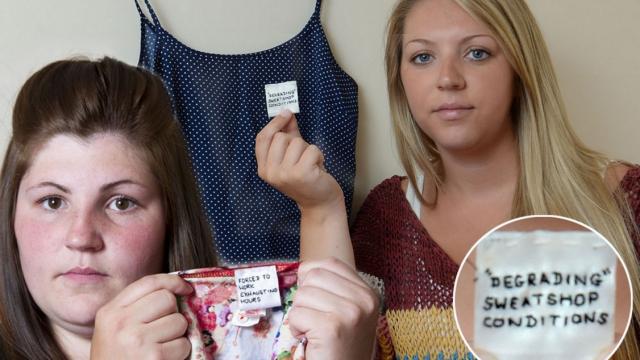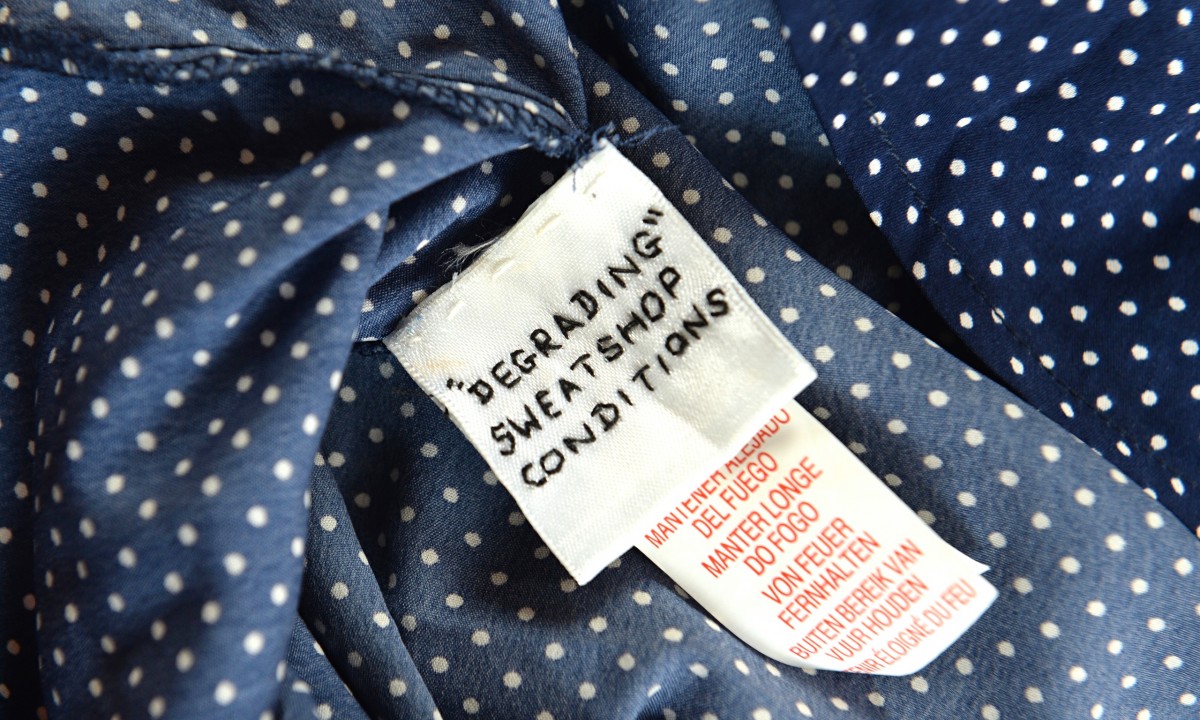
More than one in ten businesses in the U.K. believe it is likely slavery is occurring in their supply chain. Research compiled by the Chartered Institute of Purchasing and Supply (CIPS) reveals that 11% of business leaders in Britain think that modern slavery is taking place somewhere within their company’s production of goods.
The startling data was announced the same week the Modern Slavery Bill, which was introduced in June, entered committee stage in British Parliament. The bill is one of the first in the world and is designed to address the issues of slavery and trafficking in the 21st century by providing:
“Law enforcement with stronger tool to stamp out modern slavery, ensure slave drivers can receive suitably severe punishments and enhance protection of and support for victims.”
Does the CIPS data suggest the U.K.’s Modern Slavery Bill isn’t working?
"Don’t Ask, Don’t Tell"
The Chartered Institute of Purchasing and Supply is a U.K.-based international education and qualification body which represents purchasing and supply chain professionals. According to the CIPS, its findings reflect that, when it comes to supply chains, businesses have reverted back to a culture of ‘don’t ask, don’t tell’.
The CIPS survey found that 72% of supply chain professionals claim to have no visibility of their procurement processes beyond the second tier. Just 11% of those surveyed said they have complete visibility of processes across the whole chain.
Consumers are not entirely blameless. The CIPS research shows that only 30% of consumers consider the country in which the product they are purchasing is sourced from. What’s more, only a quarter of those surveyed say that they care about how their products are sourced.
Explaining that in order for the Modern Slavery Bill to have a chance of abolishing slavery from British businesses and supply chains, David Noble, group CEO of the CIPS, said: “A professional ‘licensing’ of all supply chain and procurement professionals is becoming critical to avoid the UK sleepwalking into another supply chain crisis.”
The supply chain crisis Noble refers to is the horsemeat scandal of 2013. Outcry emerged when horsemeat was discovered in processed beef products sold in several British supermarket chains, resulting in the food industry’s supply chain being thrown into the spotlight. Noble claims that the U.k. has failed to learn from the scandal.
Noble is not alone in the view that the logistic network of products in the U.K. have learned little from the 2013 scandal. The CIPS also found that 51% of supply chain professionals do not think supplier risk is taken any more seriously as a result of last year’s horsemeat crisis.
It is however, slavery, not horsemeat, that is the real scandal when it comes to corrupt business supply chains in the U.K. As Fraser Nelson writes in The Telegraph, lengthy business supply chains are corruptible and can hide a multiple of crimes.
“There is every prospect that, if a torch is shone into dark corners of global supply chains, you will find modern-day slaves,” writes Nelson.
Modern-Day Slavery
We might be taught at school that slavery only existed in Roman empires and American plantations in the 18th century and died out in the last century, but in reality, slavery still exists. According to a report released by Walk Free, which fights to end modern slavery, 29,800,000 people are living in slavery around the world today.
Far from being a tempered definition of slavery, modern-day slaves are forced laborers, child soldiers, child brides and forced prostitutes, enforced into the thralldom of ownership. What’s more, the vices of modern-day slavery is not confined to corners of Haiti, Pakistan, Mauritania and Nepal. It’s happening on the doorstep of western civilizations, and none more so than the U.K., where it can be traced through British supply chains.
In 2008, a huge scandal broke out involving Primark, a British-owned fashion retailer. Primark’s success and popularity stems from the fact it sells fashionable garments extremely cheaply. The BBC's Panorama program went undercover and exposed that many Primark garments were made by children laboring in refugee camps in India. The program showed children as young as 11 sewing fashion items that cost British shoppers just a few pounds to buy.
As soon as the Panorama exposé was aired, Primark acted immediately, sacking three of its suppliers. The speed at which the fashion retailer acted meant, despite the highly damming documentary, it remained relatively untarnished with swathes of U.K. shoppers still passing through its doors each day determined to grab themselves a fashion bargain.
A Cry For Help
In the wake of the 2008 Primark slavery scandal, one would like to hope that the "cheap and cheerful" clothing chain would have completely obliterated slave-labor from their supply chain. Sadly this is not the case. In June this year the British Home Office was asked to investigate claims that trousers bought in a Primark branch in Belfast, Ireland were made using slave labour in a prison in China.
An investigation was launched after an Irish woman found a cry for help letter stuffed in the pocket of the Primark trousers. The note read:
“SOS! SOS! SOS! We are prisoners in the Xiang Nan Prison of the Hubei Province in China. Our job inside the prison is to produce fashion clothes for export. We work for 15 hours per day and the food we eat wouldn’t even be given to dogs or pigs. We work as hard as oxen in the field. We call on the international community for the violation of our human rights.”
The courts in Britain might be getting new powers to protect people who are trafficked into the U.K., held against their will and forced to work through the Modern Slavery Bill. However, with 11% of British businesses believing slavery in their supply chains is likely, with 30% of consumers choosing to turn a blind eye to where their products are sourced, and with cry of help notes being stuffed in garments made and shipped from prisons in China, let’s hope the U.K.’s "pioneering" Modern Slavery Bill reaches the corners of the world that are considered "out of sight out of mind."
3 WAYS TO SHOW YOUR SUPPORT
- Log in to post comments












